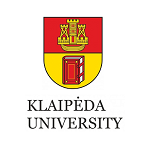THE PSYCHOLOGICAL BASIS OF STUDENTS’ SELF-REALIZATION AT THE INTEGRATED EDUCATIONAL ENVIRONMENT
Last modified: 25.02.2020
Abstract
In the space of modern Ukrainian higher education, the tasks of vocational training development and improvement, integration and creating conditions for disabled students’ creative self-realization become really important. In order to create the structure of adapted environment at universities and to promote personal and professional development of all participants at the integrated educational environment, a comprehensive psychological study of the psychological foundations of students' personal self-realization should be done. The research objective: to study psychological characteristics of students’ self-realization studied at integrated groups with investigation of disabled students’ self-attitudes and their correlations with self-actualization, meaningful life orientations and psychological hardiness. Research methods: the test-questionnaire of self-attitudes (S. Pantileev, V. Stolin); Shostrom's Personal Orientation Inventory in adaptation N. Kalin, A.Lazukin; the Test of Meaningful Life Orientation of D.L.Leontev; S.Maddi's Hardiness Scale in adaptation of D.Leontiev, Ye.I. Raskasova; the methods of statistical analysis for empirical data: comparative analysis of average indicators, correlation analysis. The performed empirical study revealed such psychological characteristics of disabled students’ self-attitudes as unrealistic ideas about themselves, their abilities and skills, a tendency to self-blame, low level of self-understanding, which can become obstacles to their effective self-realization. The success of students' self-realization in the integrated educational environment of universities is provided by their internal resources: positive self-attitude, awareness of goals, meanings in life, strength and stability of Self, cooperation with other people, society as a whole.
Keywords
References
Ankey, E.M., & Lemann, J. P. (2011). Journey toward Self-Determination: Voices of Students with Disabilities Who Participated in a Secondary Transition Program on a Community College Campus. Sage journals, 32(4), 279-289. DOI: https//doi.org/10.1177/0741932510362215
Fetiskin, N.P., Kozlov, V.V., & Manujlov, G.M. (2002). Sotsial'no-psikhologicheskaya diagnostika razvitiya lichnosti I malykh grupp. M.: Progress, 426-433.
Klochko, V.E. & Galazhinskij, EH.V. (1999). Samorealizatsiya lichnosti: sistemnyj vzglyad. Tomsk: Izdatel'stvo Tomskogo universiteta. Retrieved from: http://vital.lib.tsu.ru/vital/access/manager/Repository/vtls:000112507
Kolyshko, A.M. (2012). Vliyanie smyslozhiznennogo krizisa na samootnoshenie lichnosti v period rannej zrelosti. Psihologicheskie problemy smysla zhizni i akme: Elektronnyj sbornik materialov XVII simpoziuma. Retrieved from: http://www.pirao.ru/ru/news/ detail.php?ID=6812
Leont'ev, D. & Rasskazova, E. (2006). Test zhiznestojkosti. M.: Smysl. Retrieved from: https://www.aksp.ru/work/activity/nac_strateg/resurs_centr/files/soln_testgizn.pdf
Leont'ev, D. А. (2000). Test smyslozhiznennykh orientatsij (SZHO).M.: Smysl. Retrieved from: http://publishing.smysl.ru/book/sgo/ManSGO.pdf
Maslou, А. (2008). Motivatsiya I lichnost'. SPb. Piter. Retrieved from: http://www.bim-bad.ru/docs/maslow_motivation_and_personality.pdf
Maddi, S.R. (2006). Hardiness: The courage to grow from stresses. The Journal of Positive Psychology, 1(3), 160-168. DOI: 10.1080/17439760600619609
Maddi, S.R. (2013). Hardiness. Turning stressful circumstances into resilient growth. Springer Netherlands, Irvine, CA. DOI 10.1007/978-94-007-5222-1
Pantileev, S.R. (1993). Metodika issledovaniya samootnosheniya. M: Smysl. Retrieved from: http://lib.mgppu.ru/opacunicode/app/webroot/index.php?url=/notices/index/IdNotice:241533/Source:default
Rodzhers, K. (2002). Svoboda uchit'sya. M.: Smysl. Retrieved from: http://lib.mgppu.ru/opacunicode/app/webroot/index.php?url=/notices/index/IdNotice:11503/Source:default
Rodzhers, K. (2016). Stanovlenie lichnosti. Vzglyad na psikhoterapiyu. M.: Institut obshhegumanitarnykh issledovanij. Retrieved from: https://royallib.com/book/rodgers_karl/o_stanovlenii_lichnostyu.html
Ryan, R.M., & Deci, E.L. (2017). Self-determination theory: Basic psychological needs in motivation, development, and wellness. New York, NY, US: Guilford Press. DOI: 10.7202/1041847ar
Selezneva, E.V. (2015). Grani samoosushestvleniya: ot samootnosheniya k samorealizacii: monografiya. M.-Berlin: Direkt-Media. Retrieved from: https://pps.ranepa.ru/Publication2/2015/d2d7bbbc-d0bf-e611-80d0-005056a06105/55f947312ebba.pdf
Serdyuk, L.Z. (2014). Osobystisnyj modus samorealizaciy I majbutnix faxivciv. Visnyk pislyadyplomnoyi osvity, 10(23), 239-248. Retrieved from: http://nbuv.gov.ua/UJRN/Vpo_2014_10_25
Serdiuk, L., Danyliuk, I., & Chykhantsova, O. Psychological factors of secondary school graduates’ hardiness. Social Welfare: Interdisciplinary Approach, 1, 93-103. DOI: https://doi.org/10.21277/sw.v1i9.454
Stolin, V.V. (1983). Samosoznanie lichnosti. M.: Izdatelstvo MGU. Retrieved from: http://psylib.org.ua/books/stolv01/index.htm
Walker, H. M., Calkins, C., Wehmeyer, M. L., Walker, L., Bacon, A., Palmer, S. B., Johnson, D. R. (2011). A social-ecological approach to promote self-determination. Exceptionality, 19, 6–18. DOI:10.1080/09362835.2011.537220
Wehmeyer, M.L., Palmer, S.B., Soukup, J.H., Garner, N.W., & Lawrence, M. (2007). Self-Determination and Student Transition Planning Knowledge and Skills: Predicting Involvement. Exceptionality, 15(1), 31-44. DOI: 10.1207/s15327035ex1501_4








